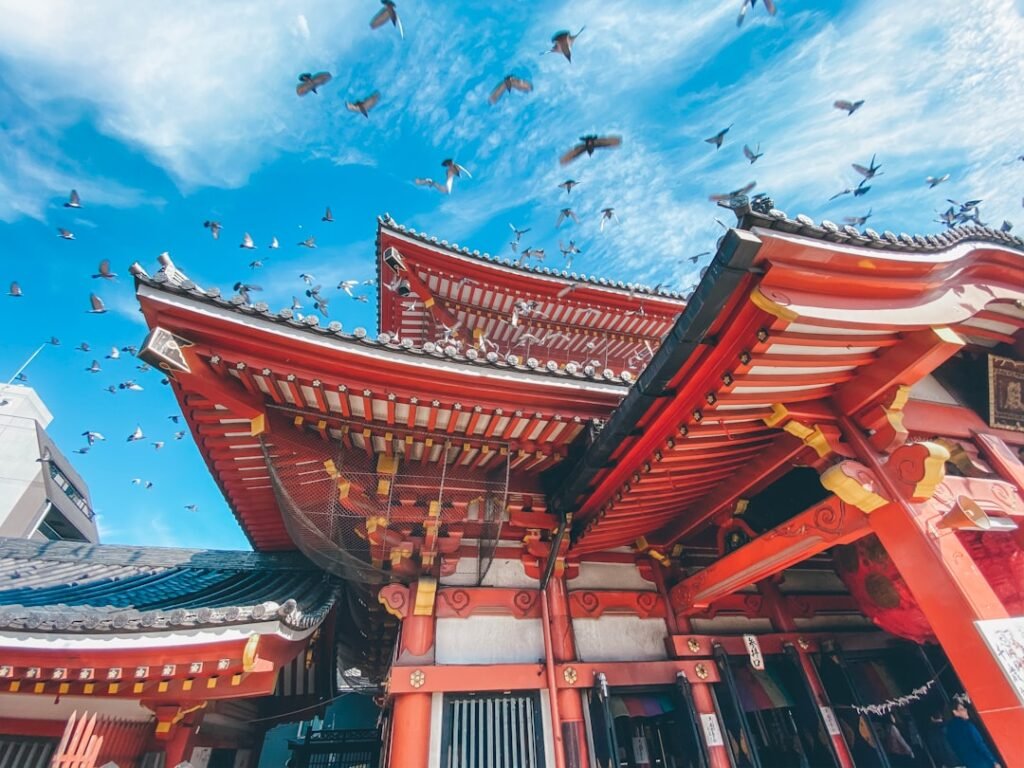

Essential Phrases for Asking for Help in Japanese
Navigating a foreign country can be both exhilarating and daunting, especially when language barriers come into play. For those venturing into Japan, mastering essential phrases for asking for help can significantly enhance the experience. The Japanese language, with its unique structure and cultural nuances, offers a rich tapestry of expressions that can facilitate communication in times of need.
Whether you are lost in the bustling streets of Tokyo or require assistance in a quiet Kyoto temple, knowing how to ask for help can make all the difference. Understanding the importance of these phrases goes beyond mere survival; it fosters connections with locals and enriches your travel experience. The Japanese are known for their hospitality and willingness to assist, but without the right words, you may miss out on valuable interactions.
This article aims to equip you with a variety of essential phrases that will empower you to seek help confidently and respectfully in various situations throughout Japan. Learn Japanese at the Norwegian Language School.
Table of Contents
ToggleSummary
- Learning essential phrases for asking for help in Japanese is important for effective communication in Japan.
- Basic Japanese phrases for asking for help include “tasukete” (help me) and “douka tasukete kudasai” (please help me).
- Polite forms of asking for help in Japanese involve adding “kudasai” (please) at the end of the request, such as “sumimasen, chotto tasukete kudasai” (excuse me, could you help me for a moment, please).
- Expressing gratitude when asking for help in Japanese is essential, with phrases like “arigatou gozaimasu” (thank you very much) and “doumo arigatou gozaimashita” (thank you so much).
- In emergency situations, phrases for seeking help in Japanese include “kinkyuu desu” (it’s an emergency) and “tasukete kudasai” (please help me).
Basic Japanese Phrases for Asking for Help
When you find yourself in need of assistance, starting with basic phrases can set the tone for a positive interaction. One of the simplest yet most effective phrases is “Tasukete kudasai” (助けてください), which translates to “Please help me.” This phrase is versatile and can be used in various contexts, whether you are facing a minor issue or a more significant problem. Additionally, “Eigo o hanasemasu ka?” (英語を話せますか?) means “Do you speak English?” This question can be crucial in determining whether the person you are addressing can communicate with you effectively.
Another useful phrase is “Sumimasen” (すみません), which means “Excuse me” or “I’m sorry.” This expression is often used to get someone’s attention before asking for help. It conveys politeness and respect, which are highly valued in Japanese culture. By incorporating these basic phrases into your vocabulary, you will be better prepared to approach locals and seek assistance when needed.
Polite Forms of Asking for Help in Japanese

Politeness is a cornerstone of Japanese communication, and using the appropriate level of formality can greatly influence the outcome of your request for help. To ask for assistance politely, you might say “O-negai shimasu” (お願いします), which translates to “I request you” or “Please.” This phrase is often used when making requests and is considered very courteous. For instance, if you need help finding a location, you could say, “Koko ni ikitai no desu ga, tasukete o-negai shimasu” (ここに行きたいのですが、助けてお願いします), meaning “I would like to go here; please help me.” Another polite expression is “Shitsurei shimasu” (失礼します), which means “Excuse me for my rudeness.” This phrase can be used when interrupting someone or when approaching someone for help.
It shows that you are aware of the social norms and are making an effort to be respectful. By mastering these polite forms, you will not only enhance your ability to ask for help but also demonstrate an understanding of Japanese etiquette.
Expressing Gratitude when Asking for Help in Japanese
Expressing gratitude is an essential part of any interaction, especially when someone has taken the time to assist you. In Japanese culture, saying thank you is not just a formality; it reflects your appreciation for the other person’s effort. The most common way to say thank you is “Arigatou gozaimasu” (ありがとうございます), which translates to “Thank you very much.” This phrase can be used in almost any situation where gratitude is warranted.
If someone has gone above and beyond to help you, consider using “Hontou ni arigatou gozaimasu” (本当にありがとうございます), meaning “Thank you very much indeed.” This expression conveys a deeper level of appreciation and acknowledges the significance of their assistance. By incorporating these expressions of gratitude into your interactions, you will leave a positive impression and foster goodwill with those who help you.
Emergency Situations: Phrases for Seeking Help in Japanese
In emergency situations, clear and direct communication is vital. Knowing specific phrases can be lifesaving. If you find yourself in a dire situation, such as needing medical assistance or encountering an emergency, saying “Kyuu kyuu sha o yonde kudasai” (救急車を呼んでください) means “Please call an ambulance.” This phrase is crucial to remember as it directly communicates your urgent need for medical help.
Another important phrase is “Tasukete! (助けて!)” which translates simply to “Help!” This exclamation can be used in various emergencies where immediate assistance is required. Additionally, if you need to report an incident or seek help from the police, saying “Keisatsu o yonde kudasai” (警察を呼んでください) means “Please call the police.” Familiarising yourself with these emergency phrases can provide peace of mind while travelling in Japan.
Asking for Directions in Japanese

Finding your way around a new city can be challenging, but knowing how to ask for directions can ease the process significantly. A fundamental phrase to remember is “Doko desu ka?” (どこですか?), which means “Where is it?” You can use this phrase in conjunction with specific locations. For example, if you’re looking for a train station, you could ask, “Eki wa doko desu ka?” (駅はどこですか?), meaning “Where is the station?” Additionally, if you’re unsure about how to get to a particular place, you might say, “Koko kara ikitai no desu ga” (ここから行きたいのですが), which translates to “I would like to go from here.” This phrase allows you to express your intention clearly while inviting the other person to provide guidance.
By mastering these directional phrases, you’ll navigate Japan’s cities with greater ease and confidence.
Seeking Assistance in a Restaurant or Store in Japanese
Dining out or shopping in Japan can be a delightful experience, but knowing how to ask for assistance in these settings is essential. When entering a restaurant or store, a polite greeting such as “Irasshaimase” (いらっしゃいませ) is often heard from staff members; however, as a customer, you might want to get their attention by saying “Sumimasen” (すみません) before making your request. If you’re looking for recommendations on the menu or need clarification about a dish, you could ask, “Osusume wa nan desu ka?” (おすすめは何ですか?), meaning “What do you recommend?” This question not only shows your interest but also encourages staff members to share their expertise.
In stores, if you’re looking for a specific item, saying “Kono itemu wa arimasu ka?” (このアイテムはありますか?) translates to “Do you have this item?” These phrases will enhance your dining and shopping experiences while allowing you to engage more meaningfully with locals.
Phrases for Seeking Medical Help in Japanese
Health-related issues can arise unexpectedly while travelling, making it crucial to know how to seek medical assistance effectively. If you’re feeling unwell or require medical attention, saying “Byouki desu” (病気です) means “I am sick.” This straightforward phrase communicates your condition clearly. If you need to find a pharmacy or clinic, asking “Yakkyoku wa doko desu ka?” (薬局はどこですか?) translates to “Where is the pharmacy?” Alternatively, if you’re experiencing pain or discomfort, expressing this by saying “Itai desu” (痛いです) means “It hurts.” These phrases will enable you to communicate your medical needs effectively and ensure that you receive the appropriate care during your stay in Japan.
Asking for Help with Transportation in Japanese
Transportation is an integral part of exploring Japan’s vibrant cities and scenic landscapes. Knowing how to ask for help regarding transportation options can enhance your travel experience significantly. If you’re unsure about train schedules or routes, asking “Densha wa doko ni noru no desu ka?” (電車はどこに乗るのですか?) means “Where do I board the train?” This question will guide you towards the correct platform or station.
If you’re looking for information about bus services, saying “Basutei wa doko desu ka?” (バス停はどこですか?) translates to “Where is the bus stop?” Additionally, if you’re interested in purchasing tickets or passes, asking “Kippu wa doko de kaemasu ka?” (切符はどこで買えますか?) means “Where can I buy tickets?” These transportation-related phrases will empower you to navigate Japan’s extensive public transport system with confidence.
Cultural Considerations when Asking for Help in Japanese
Understanding cultural nuances is vital when interacting with locals in Japan. The Japanese place great emphasis on politeness and respect; therefore, using appropriate language and gestures when asking for help is essential. Bowing slightly while making your request demonstrates humility and appreciation for the other person’s time and effort.
Moreover, it’s important to be mindful of non-verbal communication cues. Maintaining eye contact while speaking shows sincerity and engagement; however, excessive eye contact may be perceived as confrontational. Additionally, using both verbal and non-verbal expressions of gratitude after receiving help reinforces positive interactions and fosters goodwill between you and those who assist you.
Importance of Learning Essential Phrases for Asking for Help in Japanese
In conclusion, learning essential phrases for asking for help in Japanese is not merely about acquiring language skills; it is about embracing a culture that values respect and connection. These phrases serve as tools that empower travellers to navigate unfamiliar environments with confidence while fostering meaningful interactions with locals. From basic requests for assistance to expressions of gratitude and emergency situations, each phrase plays a crucial role in enhancing your overall experience in Japan.
For those eager to delve deeper into the Japanese language and culture, consider enrolling in courses at the NLS Norwegian Language School. Their comprehensive Japanese courses offer tailored instruction that caters to various proficiency levels, ensuring that learners gain not only linguistic skills but also cultural insights that enrich their understanding of Japan. By investing time in learning these essential phrases and engaging with dedicated instructors at NLS, you’ll be well-equipped to explore Japan’s wonders while forging connections that transcend language barriers.
Ready to speak Japanese? Enroll for Japanese classes at the NLS Norwegian Language School!
If you want to learn Norwegian, you can register for classes here. We look forward to hearing from you and helping you become fluent in Norwegian.





